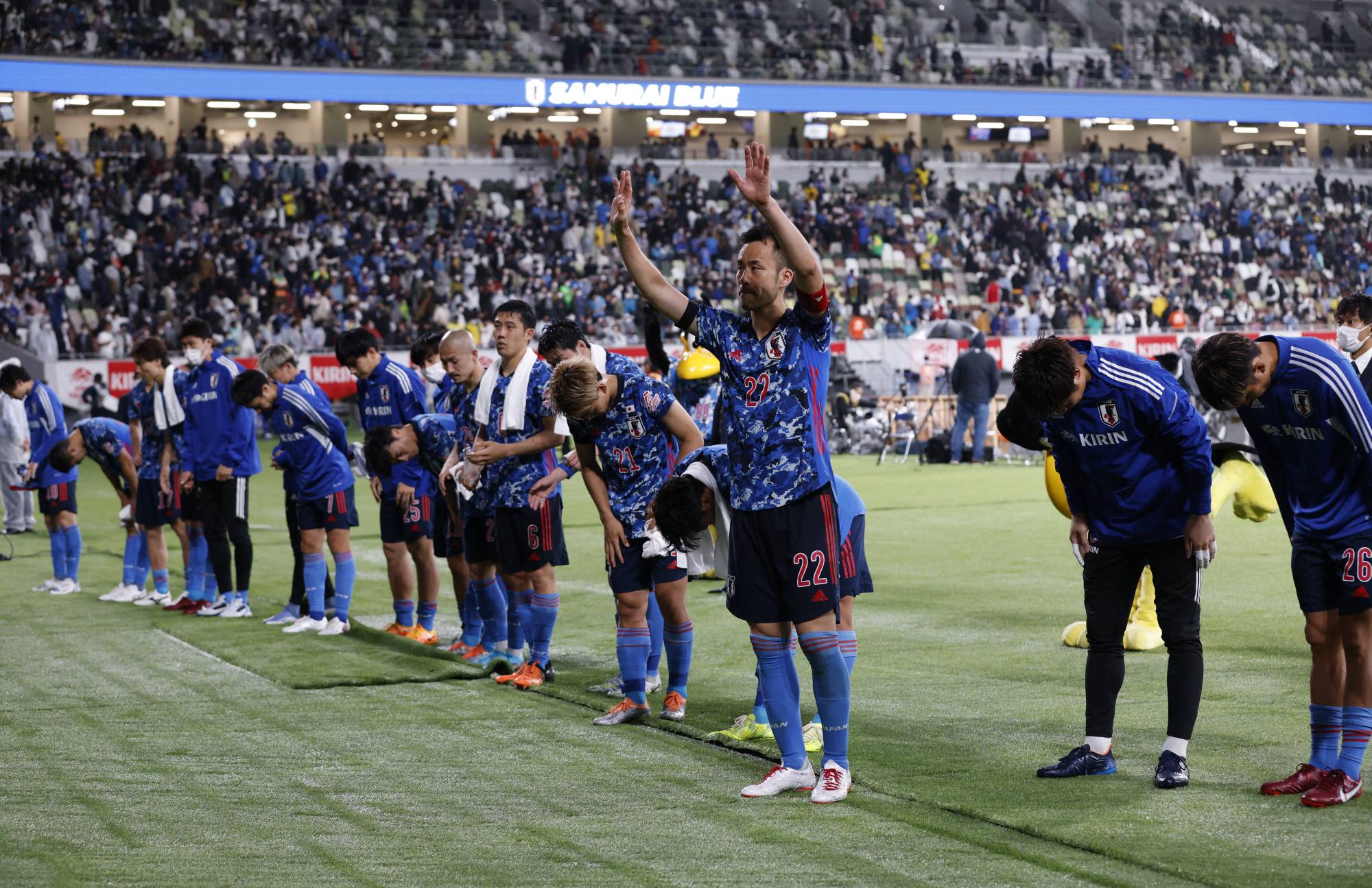The world’s best soccer teams are capable not only of earning three points for a win, but of turning a loss worth zero points into something more — a lesson that will drive those team’s growth and lead to greater triumphs down the line.
It’s a skill that Japan’s national team has struggled to develop over the years, even as it has sought to learn from the sport’s elite as part of its quest to become the first Asian team to lift the men’s FIFA World Cup.
Narrow losses to top-ranked nations, such as the team’s stunning 3-2 collapse against Belgium in the 2018 World Cup’s round of 16, have been celebrated as moral victories, with the question of “what went wrong” buried under praise for Japan’s valiant efforts.
















With your current subscription plan you can comment on stories. However, before writing your first comment, please create a display name in the Profile section of your subscriber account page.